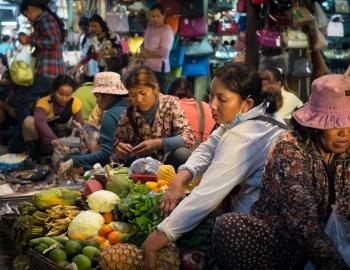Policy Brief : How do gender approaches improve climate compatible development? Lessons from Peru
Policy Brief : How do gender approaches improve climate compatible development? Lessons from Peru
Share this:
Resource detail:
Date:
Author:
CDKN Global
Type:
Policy briefs
Organisation:
Practical Action
Countries:
Latin America and the Caribbean,
Peru
This brief is based on a research project carried out by Practical Action Consulting with support from the Institute of Development Studies, commissioned by and supported by CDKN, to provide evidence on the advantages and challenges of integrating a gender dimension into climate compatible development strategies in urban settings, with a focus on Peru. Although considerable evidence exists pertaining to rural areas, significant knowledge gaps can be found in relation to climate compatible development and gender in urban areas.
Key messages:
- A research study looked at whether gender-sensitive approaches to climate compatible development are being adopted in urban areas of Peru and if so, whether these approaches influence development outcomes for men and women.
- The study assessed gender awareness and action in two of Peru’s Risk Management and Climate Change Adaptation Networks (known locally as GRIDES), whose main achievement has been to integrate disaster risk and climate adaptation measures in local government plans.
- The study found that where women played a leading role in the GRIDES, local government proposals include an implicit gender approach.
- However, ‘gender’ issues tend to be regarded as ‘for women only’ and somewhat theoretical. The lack of a more explicit position or understanding of gender among the agencies concerned means that the interventions described in the local plans lack concrete measures for tackling gender inequality.
- A very wide range of actions are recommended across society, including among central and local government agencies, civil society organisations and academia, to increase awareness and understanding, develop the potential of gender-sensitive approaches, and so improve development outcomes for urban women, men, girls and boys.
This report was produced as part of a series of papers on gender and climate change, to read more, visit our page on Gender equality and achieving climate goals.



